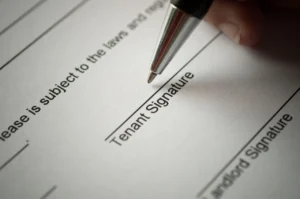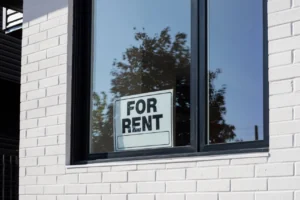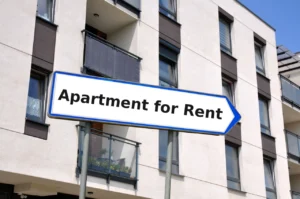Buying a second home or investment property? You can use a home equity loan to pay for it
When you own a home, you have the opportunity to build equity, which is the value of your home, minus any loan balances you have against it. You can increase your home equity by making improvements to your house, paying down your mortgage, or even just sitting back as your home’s value appreciates over time.
Once you have equity, you can turn it into cash using a home equity loan. These loans are types of second mortgages that allow you to borrow against your equity and get a portion of it back in cash. You then repay the loan via monthly payments—often over many years.
How home equity loans work
Home equity loans let you borrow against the value of your home that you own outright, and convert it into a lump sum, cash payment. You can then use those funds however you wish.
 Getting a home equity loan works much like getting a traditional mortgage. You will fill out an application, submit financial documents like bank statements, pay stubs, tax returns, and W-2s and then close on your loan. One way that home equity loans do differ from applying to a traditional mortgage: You may not owe closing costs, though it depends on the lender you choose.
Getting a home equity loan works much like getting a traditional mortgage. You will fill out an application, submit financial documents like bank statements, pay stubs, tax returns, and W-2s and then close on your loan. One way that home equity loans do differ from applying to a traditional mortgage: You may not owe closing costs, though it depends on the lender you choose.
To qualify for a home equity loan, you’ll usually need:
- A 680 credit score or higher
- A debt-to-income (DTI) ratio of 45% or less
- At least 10% to 20% equity in your home
Once approved for a home equity loan, you’ll receive the funds a few days after closing. You will begin repaying the loan back immediately—via fixed monthly payments.
Can I take out a home equity loan to buy a second home?
The short answer is yes, you can use a home equity loan to buy a second home. Since the proceeds from a home equity loan can be used for any purpose, that means you can use the money to buy additional real estate if you wish to.
Doing so comes with risk, though. As Adam Spigelman, a senior vice president at Planet Home Lending, explains, “You can use a home equity loan to buy another property—just be sure you’re comfortable with using your home to secure it.”
Here’s a look at the full pros and cons of using a home equity loan to buy a second house.
Pros of using a home equity loan to buy a second home
Using a home equity loan to purchase real estate can often be beneficial, allowing you to keep your savings intact, spread the costs of your purchase over a long period of time, and enjoy reliable, monthly payments.
Here’s a rundown of the benefits this strategy comes with:
- You get a large amount of cash, which you can use as a down payment or to purchase a property in full.
- Interest rates are fixed, meaning you enjoy a consistent monthly payment for the entire loan term.
- There are many repayment terms to choose from, ranging from five to 30 years.
- You don’t have to tap into your savings, emergency fund or retirement accounts to pay for your second home purchase.
- It may be easier to qualify for than a second home mortgage, as lenders consider it less risky.
Cons of using a home equity loan to buy a second home
Despite the strategy’s benefits, using home equity to buy a second home isn’t without risk. For one, these loans add a second monthly payment on top of your mortgage. They also use your home—the place you and your loved ones live—as collateral, so if you don’t stay current on payments, the lender can foreclose on your house.
“If you can’t make both payments, you will fall behind very quickly,” says Jim Black, chief lending officer at InstaMortgage and an advisor at Calque Lending. “You can lose everything—literally.”
Other drawbacks include:
- It puts your primary home at risk of foreclosure if you can’t make your payments.
- Home equity loans add a second monthly payment, which could strain your household budget.
- It could mean owing more than your home’s worth if home values decline in your area.
Get a Free Multifamily Loan Quote
Access Non-Recourse, 10+ Year Fixed, 30-Year Amortization
Using a home equity loan to buy an investment property
You can also use home equity loans to buy an investment property. That could mean taking out a home equity loan against your primary residence or your second home (if you have one). Then, you’d use those funds as a down payment on the investment property or to buy it outright.
This strategy comes with both advantages and drawbacks. On the one hand, it could make qualifying for a loan easier. On the other hand, you’ll need to be extra careful about the property you purchase, particularly if you plan to use its income to cover your payments.
Here’s a look at the full range of pros and cons of this strategy.
Pros of using a home equity loan to buy an investment property
One advantage of using a home equity loan to buy an investment property is that it may be easier to qualify for than other options. Mortgages for investment properties tend to have more stringent requirements than home equity loans, and they’re often more costly.
There are other upsides to using a home equity loan: “The benefit of using a home equity loan is that the interest rate may be lower,” says Spigelman.
Other benefits include:
- You get a large amount of cash, which you can use as a down payment or to purchase a property in full.
- Interest rates are fixed, meaning you enjoy a consistent monthly payment for the entire loan term.
- There are many repayment terms to choose from, ranging from five to 30 years.
- You don’t have to tap into your savings, emergency fund, or retirement accounts to pay for your second home purchase.
- It may be easier to qualify for than a traditional loan, and interest rates may be lower.
Cons of using a home equity loan to buy an investment property
There aren’t any additional requirements for using a home equity loan toward an investment, although there are some unique considerations you should take into account—especially if you plan to use the property’s income to cover your payments.
“You’ll need to make sure that the property you’re interested in purchasing will actually generate income,” says Alex Shekhtman, CEO and founder of LBC Mortgage.
To do this, consider working with a real estate agent. They can help you understand local market conditions and ensure you’re investing in an in-demand area.
You should also take into account the extra costs that come with an investment property, including maintenance, cleaning, restocking supplies, and, if you’re hiring a property management company, the cost of those services.
“You’ll want to weigh the short-term aspects of the current buying environment with the long-term potential prospects of the property,” Black says. “You’ll also want to figure out a budget to make sure you have cash on hand for repairs or unanticipated vacancies or slow seasons.”
Some other drawbacks of this financing strategy include:
- It puts your primary home at risk of foreclosure if you can’t make your payments.
- Home equity loans mean an additional monthly payment, which could strain your household budget.
- It could mean owing more than the property’s worth if home values decline in your area.
- There’s no way to guarantee the property will generate income, so it may be hard to make payments if you’re counting on these earnings.
- You’ll need to factor in other costs, like maintenance and cleaning, as well as possible future vacancies.
The takeaway
If you’re considering a second home or investment property purchase, a home equity loan is one financing option to explore. But remember: They do come with risks—particularly if you’re borrowing against the equity in the home where you live.
Before you apply for one, do the math. Make sure you have the funds to comfortably cover your payments—both on your main mortgage and the home equity loan—not just today but over the long haul, too.
“A home equity loan is a type of secured loan, which means that if you default on the loan, your lender could foreclose on your home,” Shekhtman says. “It’s important to make sure that you can comfortably make the monthly payments before taking one out.”
Source: Fortune













 Accessibility
Accessibility